WORLDWIDE: HEADLINES
BOJ Policymakers Unwavering On Easy Policy Stance – March Mtg Minutes
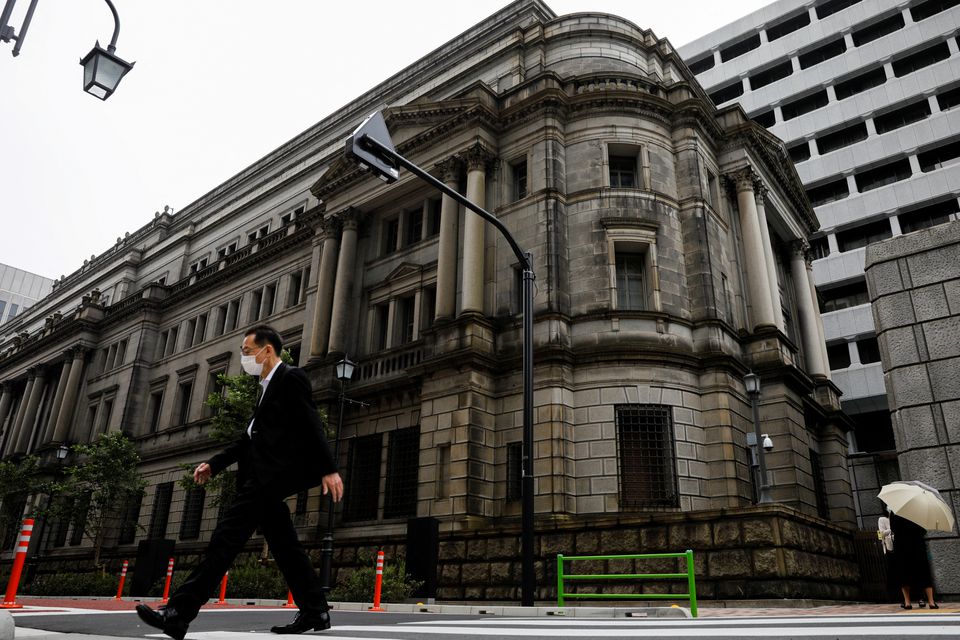
Bank of Japan (BOJ) policymakers remained unwavering in their resolve to keep massive monetary stimulus, even as some saw signs of change in the country’s low-inflation environment, minutes for their March policy meeting showed on Monday.
Several in the nine-member board said some big firms were raising wages and companies were more eagerly passing on rising raw material costs to households, which could put upward pressure on consumer inflation, the minutes showed.
Japan’s consumer prices rose the fastest among major advanced economies during the global inflationary cycle in the 1970s, which meant there was always a chance inflation could spiral higher once price hikes broaden, one member noted.
But most others in the board warned of heightening risks to Japan’s economy from the Ukraine crisis that would keep inflationary pressure subdued, the minutes showed.
“Unlike the United States and the United Kingdom, Japan was not in a situation where the inflation rate would likely exceed the BOJ’s 2% price target in a sustained manner,” some members were quoted as saying in the minutes.
“It was therefore important for the BOJ to continue with monetary easing to support the economy’s recovery from the pandemic,” they said.
One member said the BOJ might even need to guard against a downturn in prices from the latter half of fiscal 2022 given uncertainty over the global economic and commodity price outlook, the minutes showed.
Full coverage: REUTERS
Australia’s Albanese Banks On Working Class Brand To Restore Labor To Power
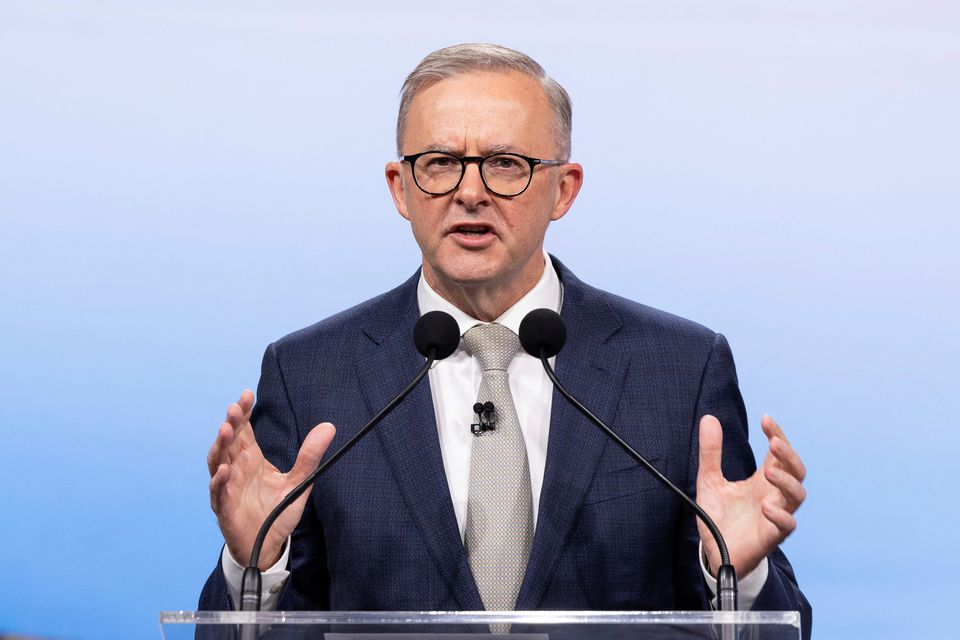
When Australian opposition leader Anthony Albanese was only 12 years old, he says, he helped to organise a rent strike that kept his mother’s public housing property from being sold off to developers.
The campaign of his Labor Party, favoured by polls to oust Prime Minister Scott Morrison in this month’s general election, is spotlighting Albanese’s working-class bona fides and his image as a pragmatic unifier, in hopes of sidestepping divisive policy debates that eroded its lead in the last nationwide vote.
But this cautious stance, resting heavily on his humble beginnings and long years of public service, has bumped into unexpected risks on the campaign trail, where the media has fixated on perceived policy gaffes when he lacked details on the unemployment rate and his party’s disability insurance plan.
“I was a bit surprised that he didn’t seem as prepared at the very beginning for the intensity of a campaign,” said John Phillimore, executive director for the John Curtin Institute of Public Policy.
“But there’s campaigning and there’s ‘what’s the ability of the person to be in government?’ As a governing style, he’d probably have a reasonably strong team approach.”
Albanese, 59, entered parliament in 1996 – just as Labor entered the first of two decade-long patches in the opposition. The party’s time back in power, from 2007 to 2013, was marred by leadership squabbles in which he openly criticised both sides.
Those years forged his reputation as a collaborator willing to work outside ideological lines, as Leader of the House where he managed government business in the parliament.
After losses in the 2010 election, Labor was saddled with the country’s first minority government in 70 years, requiring it to win support from conservatives or independents to pass laws. But by one measure cited by political commentators – the number of laws passed compared to the number of days in office – it turned out to be Australia’s most productive parliament.
Full coverage: REUTERS
WORLDWIDE: FINANCE/BUSINESS
Asian Stocks Follow Wall St Futures Lower
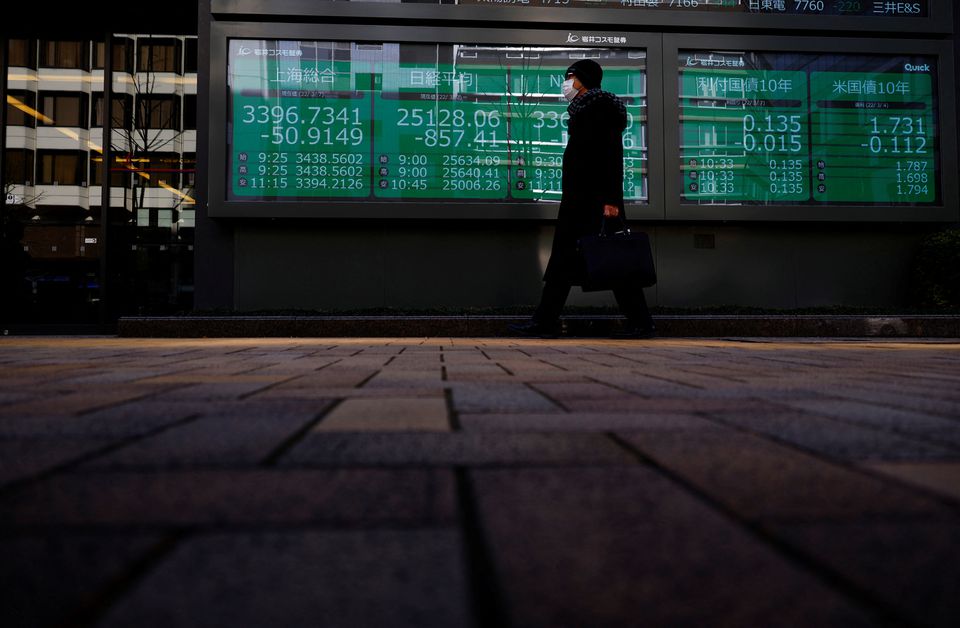
Asian markets got off to a sharky start on Monday as U.S. stock futures took an early skid on rate worries, while a tightening lockdown in Shanghai stoked concerns about global economic growth and possible recession.
“A series of rate hikes and hawkish communication came against a backdrop of plummeting Chinese and European activity, new plans for Russian energy bans and continued supply-side pressures,” warned analysts at Barclays.
“This creates the gloomy prospect of persistent inflation forcing central banks to hike rates despite sharply slowing growth.”
There was no let up in China’s zero-COVID policy with Shanghai tightening in the city-wide COVID lockdown of 25 million residents.
Speculation that Russian President Vladimir Putin might declare war on Ukraine in order to call up reserves during his speech at “Victory Day” celebrations also hurt market sentiment. Putin has so far characterised Russia’s actions in Ukraine as a “special military operation”, not a war.
S&P 500 stock futures led the way with a drop of 1.0%, while Nasdaq futures shed 0.9%. U.S. 10-year bond yields edged up to a fresh top at 3.15%.
MSCI’s broadest index of Asia-Pacific shares outside Japan (.MIAPJ0000PUS) fell 0.3%, and Japan’s Nikkei (.N225) 1.2%.
Full coverage: REUTERS
Dollar Climbs As Nerves Jolt Stockmarkets
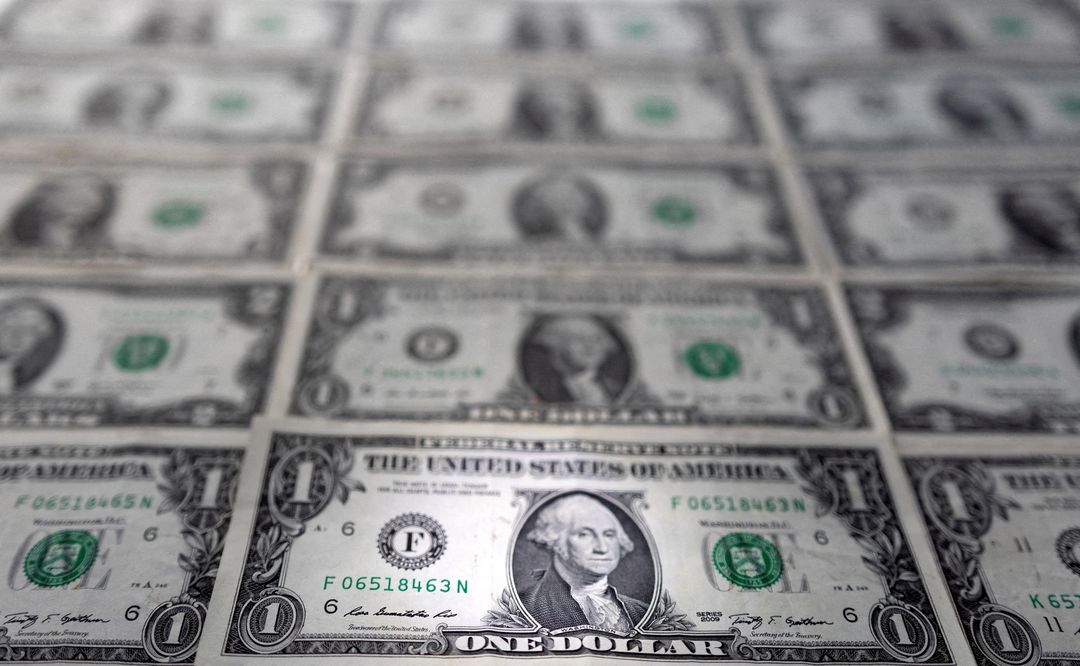
The dollar began the week on a strong footing, buttressed by sharply rising U.S. yields and by investors’ tilt toward safety as lockdowns in China, war on the edge of Europe and fear about higher interest rates sent a nervous jolt through markets.
The greenback made a 22-month high on the growth-sensitive New Zealand dollar in early trade and rose more than 0.5% on the Aussie to a three-month peak as U.S. stockmarket futures slid 1%.
The benchmark 10-year Treasury yield stood at its highest since 2018 at 3.1464% and at 130.73 yen the dollar is a whisker from a fresh two-decade top.
The dollar is close to a five-year high on the euro , which fell 0.2% to $1.0529. Sterling hovered just below two-year lows made last week after the Bank of England warned that Britain’s economy was facing recession.
“The dollar will be supported by U.S. economic outperformance and weaker equity prices,” said Joe Capurso, a strategist at the Commonwealth Bank of Australia in Sydney.
“Despite material increases in interest rates, financial conditions have not tightened much in the major economies…the need to tighten financial conditions and rein in inflation underlies the case for significant further increases.”
Full coverage: REUTERS
Oil Slips On Global Economic Concerns, Ahead Of EU Vote On Russia Oil Ban
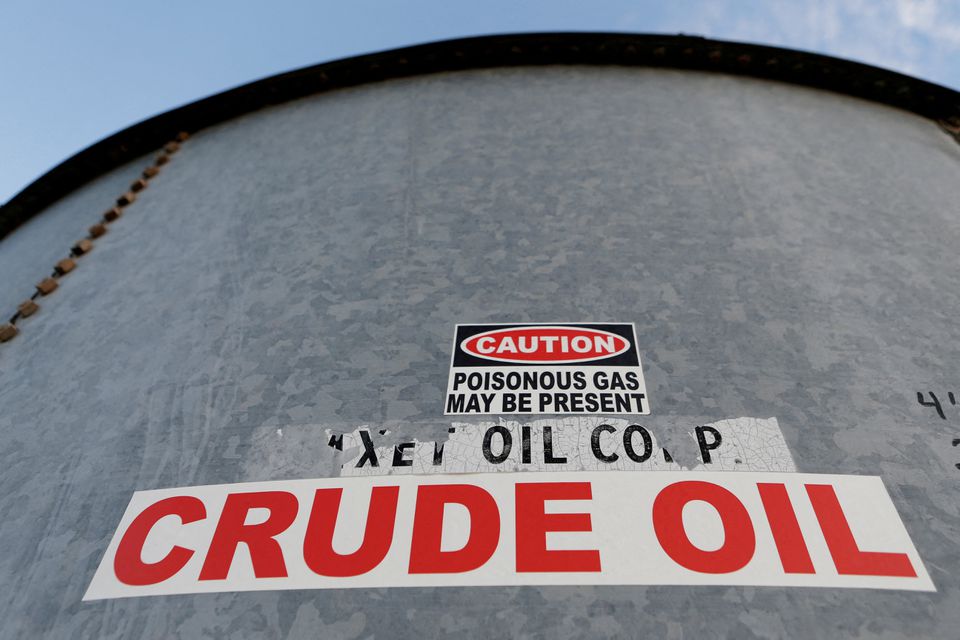
Oil prices slipped on Monday, along with stock markets in Asia, sparked by fears a global recession could dampen oil demand, with investors eying European Union talks on a Russian oil embargo that is expected to tighten global supplies.
Brent crude dropped 28 cents, or 0.3%, to $112.11 a barrel by 0153 GMT.
U.S. West Texas Intermediate crude was at $109.36 a barrel, down 41 cents, or 0.4%.
“The broader risk-off sentiment sparked by the recession fears, and China’s lockdowns are the major factors that pressure the oil price,” CMC Markets analyst Tina Teng said.
Global financial markets are also spooked by concerns over interest rate hikes and extended COVID-19 lockdowns in China that are hurting the world’s No. 2 economy.
“China’s ongoing lockdowns could continue to weigh on the near-term oil prices,” Teng said. A price cut by Saudi Arabia also reflected worries over global oil demand, she said.
Full coverage: REUTERS